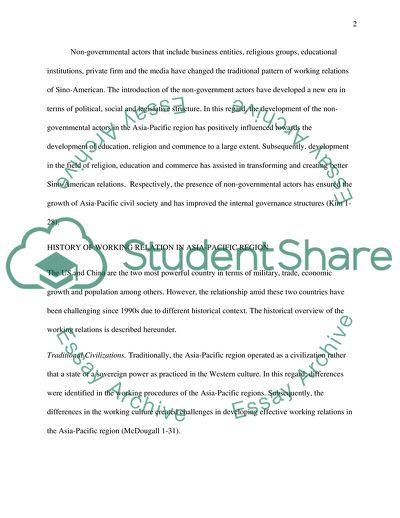Cite this document
(The Role of Non-governmental Actors in Sino-American Relations since 1900s Thesis Example | Topics and Well Written Essays - 2000 words, n.d.)
The Role of Non-governmental Actors in Sino-American Relations since 1900s Thesis Example | Topics and Well Written Essays - 2000 words. https://studentshare.org/history/1834364-the-role-of-non-governmental-actors-in-sino-american-relations-since-1900s
The Role of Non-governmental Actors in Sino-American Relations since 1900s Thesis Example | Topics and Well Written Essays - 2000 words. https://studentshare.org/history/1834364-the-role-of-non-governmental-actors-in-sino-american-relations-since-1900s
(The Role of Non-Governmental Actors in Sino-American Relations since 1900s Thesis Example | Topics and Well Written Essays - 2000 Words)
The Role of Non-Governmental Actors in Sino-American Relations since 1900s Thesis Example | Topics and Well Written Essays - 2000 Words. https://studentshare.org/history/1834364-the-role-of-non-governmental-actors-in-sino-american-relations-since-1900s.
The Role of Non-Governmental Actors in Sino-American Relations since 1900s Thesis Example | Topics and Well Written Essays - 2000 Words. https://studentshare.org/history/1834364-the-role-of-non-governmental-actors-in-sino-american-relations-since-1900s.
“The Role of Non-Governmental Actors in Sino-American Relations since 1900s Thesis Example | Topics and Well Written Essays - 2000 Words”. https://studentshare.org/history/1834364-the-role-of-non-governmental-actors-in-sino-american-relations-since-1900s.


